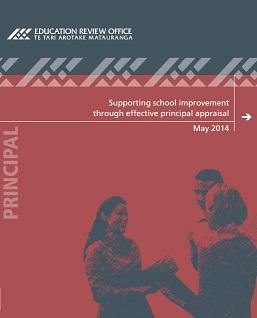Raising achievement in primary schools
Published: 30 Jun 2014
This national report presents the findings of how well a sample of primary schools were taking actions to increase the number of students achieving 'at' or 'above' national standards.The findings show that half of the schools in the evaluation had used deliberate actions to support students to accelerate progress and sustain achievement.
- Audience:
- Education
- Parents
- Schools
- Content type:
- Research
- Topics:
- Raising achievement
- Primary
- Equitable outcomes
- Accelerated learning
- Evaluation indicators
- Education outcomes










